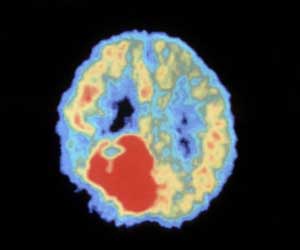COVID-19 is found to play a causative role in various neurological disorders such as ischemic stroke, encephalitis, encephalopathy, and epileptic seizures.

‘COVID-19 is found to play a causative role in neurological disorders such as ischemic stroke, encephalitis, encephalopathy, and epileptic seizures. However further evidence is required to conclude their mechanisms and further long-term consequences.’





Neurological Symptoms in COVID-19: The virus gains access to the human body via a specific receptor called ACE2 (angiotensin-converting enzyme 2) receptor, present on the lining of the respiratory cells. It is also present in other body parts like the heart, food pipe, kidney, and bladder cells.
The study emphasizes the neuroinvasive potential of SARS-CoV-2 through either a porous bone in the nasal cavity (which causes the loss of smell and/or taste commonly experienced with COVID-19), or through the body's circulatory system, subsequently crossing the blood-brain barrier.
"Ordinarily, the blood-brain barrier allows nutrients to reach the brain while protecting it from circulating toxins or pathogens that could cause infections. However, the exact mechanisms underlying COVID-19-associated neurological disorders remain unknown. Such viral infectivity could alter blood-brain barrier function, which may influence disease progression", says Dr. Chaitali Ghosh, Ph.D.
The virus upon access to the central nervous system (CNS), induces cytokine storms, thereby causing inflammation in the brain and affecting the blood-brain barrier integrity.
Advertisement
"I am eager to define and learn more about which signaling pathways are linked to which neurological disorders, and think this will be an exciting new frontier in COVID-19 research," said Dr. Ghosh.
Advertisement















